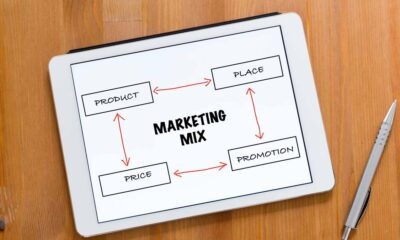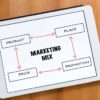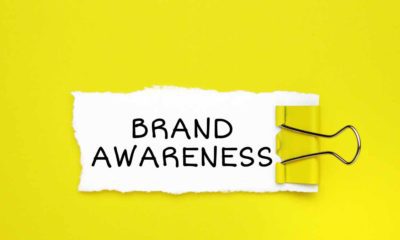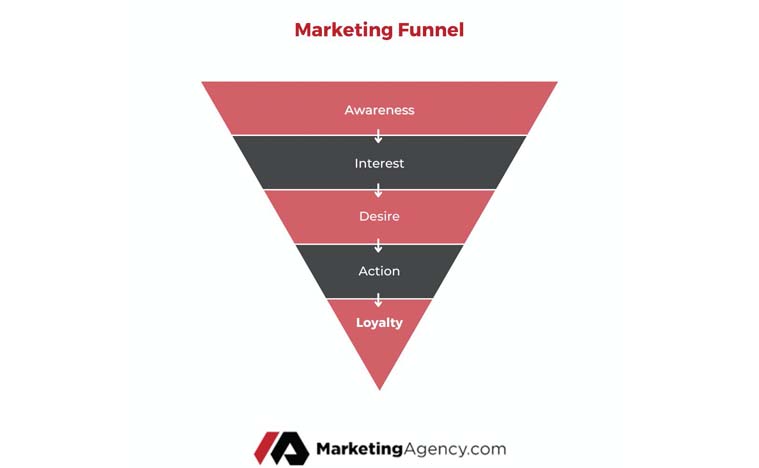Featured
Mastering Your Marketing Funnel
In the bustling world of digital marketing, the term “funnel” is tossed around almost ubiquitously. But what does it mean to truly master your marketing funnel? A marketing funnel is not just a strategy. It’s a comprehensive approach that encapsulates the customer’s journey from unawareness to conversion. It’s a systematic, structured pathway designed meticulously to guide potential customers through the various stages of the buying process. This includes converting them from mere prospects into loyal, paying customers.
Understanding the intricacies of a marketing funnel and implementing them effectively can be the differentiator between a thriving business and one that’s barely making ends meet. Let’s delve deeper into the world of marketing funnels. We will discuss exploring their types, and benefits, and how to optimize them for maximum impact.
What are Marketing Funnels?
Embarking on the journey through a marketing funnel unveils a strategic pathway. It encapsulates the customer’s progression from an initial stage of obliviousness to the ultimate stage of conversion. A marketing funnel is metaphorically termed a “funnel” due to its wide commencement at the awareness phase, gradually tapering as potential customers navigate through various stages, culminating in a narrowed conversion point where purchases are made.
Integral to comprehending marketing funnels is the AIDA model. This is an acronym that not only defines but also segments the customer’s journey within the funnel into distinct phases:
- Awareness: This is the initial phase where potential customers first become acquainted with your business. It is often through various marketing strategies like content marketing, advertisements, or social media campaigns.
- Interest: At this juncture, potential customers have moved beyond mere awareness. They have begun to show curiosity in your products or services, seeking additional information and demonstrating an engaged interest.
- Desire: This stage signifies a deeper level of engagement where potential customers. Not only want your offering but begin to visualize the benefits of opting for your product or service, creating a desire to possess it.
- Action: The final step in the AIDA model, is where the potential customers convert their interest and desire into tangible action. This can be making a purchase, and becoming actual customers.
Different Types of Marketing Funnels
Navigating through the realm of marketing funnels, it becomes evident that there are diverse types. Each focuses on facilitating a specific aspect of the customer journey and caters to various business models and offerings. Understanding and implementing the right type of funnel is pivotal for orchestrating an effective marketing strategy that resonates with your target audience and drives conversions. Let’s dive into some specific types of marketing funnels:
Email Funnel
An Email Funnel focuses on nurturing leads through consistent and targeted email communications. It begins by capturing the email addresses of potential customers. In detail, this happens often through a lead magnet. Following that it then engages them with a series of emails aimed at guiding them through the buying journey. From creating awareness and nurturing interest to inciting desire and prompting action.
Webinar Funnel
The Webinar Funnel is crafted to attract leads by offering valuable, in-depth information through a live or pre-recorded webinar. The top of the funnel focuses on promoting and driving registrations for the webinar. Meanwhile, the subsequent stages involve presenting the webinar, followed by post-webinar communications that aim to convert attendees into customers, often through special offers or additional resources.
Lead Magnet Funnel
A Lead Magnet Funnel is centered around offering something of value. The lead magnet (such as an e-book, checklist, or free trial) in exchange for the visitor’s contact information. The funnel aims to attract leads by providing immediate value and then utilizes follow-up communications, often via email, to nurture these leads toward conversion.
Live Demo Funnel
The Live Demo Funnel is particularly effective for products or services that benefit from a demonstration to showcase their value and functionality. It attracts leads by offering a live, interactive demonstration of the product/service. Followed by a pathway that guides these leads through further engagement, nurturing, and ultimately, towards making a purchase.
VSL Funnel
VSL, or Video Sales Letter Funnel, leverages the power of video to convey a sales message and guide potential customers through the buying journey. The funnel typically begins with a video that aims to grab attention and generate interest. It’s then followed up by additional content and calls to action that guides the viewer toward making a purchase. It is often complemented by additional nurturing strategies.
[Read More] 10 Top Marketing Metrics To Track In Your Business Right Now
Why are Marketing Funnels Beneficial?
The efficacy of marketing funnels transcends mere customer guidance. They serve as a pivotal framework that orchestrates the customer’s journey from initial awareness to the ultimate conversion. Making sure that marketing efforts are not just strategic, but also customer-centric. Let’s delve deeper into the multifaceted benefits of employing marketing funnels in your strategy.
Strategic Customer Journey Mapping
Marketing funnels enable businesses to meticulously map out the customer journey. Make sure that each stage is strategically designed to guide the customer to the next phase. This mapping ensures that customers are not left in a lurch and are systematically navigated through their buying journey, from initial awareness to making a purchase.
Enhanced Conversion Rates
By ensuring that potential customers are provided with the right information and stimuli at each stage of their journey, marketing funnels enhance the likelihood of conversion. They ensure that the transition from one stage to the next is seamless and logical, gradually nudging the customer towards making a purchase.
Optimized Marketing Efforts
Marketing funnels allow businesses to optimize their marketing efforts by ensuring that the right message is delivered at the right time. This targeted communication ensures that resources are utilized optimally, focusing efforts on strategies that are aligned with the customer’s current stage in the buying journey, thereby maximizing impact and ROI.
Improved Customer Retention
Post-purchase engagement is crucial for customer retention, and marketing funnels facilitate this by ensuring that the customer journey does not end at purchase. Through targeted communications, special offers, and loyalty programs, marketing funnels help maintain engagement, foster customer loyalty, and facilitate repeat purchases.
Data-Driven Decision Making
Marketing funnels also facilitate data-driven decision-making by providing insights into customer behavior at each stage of the funnel. By analyzing this data, businesses can identify bottlenecks, understand customer drop-off points, and implement strategies to enhance performance across the funnel, ensuring continuous improvement and optimization.
Personalized Customer Experience
In an era where personalization is key to customer satisfaction, marketing funnels enable businesses to tailor their communications and offerings to the customer’s specific needs and preferences at each stage, ensuring that the marketing messages are relevant, resonate with the customer, and are more likely to drive action.
Building Brand Authority and Trust
Through consistent and valuable interactions throughout the funnel, businesses can establish themselves as authorities in their domain, building trust with the customer. This trust not only facilitates conversion but also fosters a positive brand perception, enhancing the likelihood of recommendations and referrals.
[Read More] Lead Generation: Your Complete Beginner’s Guide
How to Create a Marketing Funnel
Creating a marketing funnel is an essential practice to guide your potential customers through their buying journey, from the first interaction to conversion. Here’s a simplified guide in 5 to 7 steps:
1. Understand Your Audience
Begin by gaining a deep understanding of your target audience, including their needs, preferences, challenges, and pain points, to create a funnel that effectively resonates and engages them.
2. Define Clear Objectives
Establish clear, measurable objectives for your funnel, ensuring you have defined goals such as lead generation, sales conversion, or customer retention to guide your strategy.
3. Craft a Compelling Value Proposition
Develop a unique value proposition that succinctly and effectively communicates the unique benefits and values that your product or service provides, ensuring it addresses the specific needs of your audience.
4. Design Content and Customer Journey
Map out the customer journey and create engaging, stage-specific content that effectively guides prospects from awareness through to conversion, ensuring each stage naturally leads to the next.
5. Implement and Optimize Conversion Strategies
Ensure that the path to conversion is optimized, implementing strategies like lead magnets to attract leads, and optimizing user experience to minimize friction and maximize conversions.
6. Engage and Nurture Leads
Employ strategies to engage and nurture leads through the funnel, utilizing targeted communications, retargeting strategies, and personalized content to guide them towards conversion.
7. Analyze, Optimize, and Scale
Continuously analyze funnel performance, identify opportunities for optimization, and once the funnel is performing successfully, explore strategies for scaling your efforts to maximize impact and ROI.
How to Optimize Your Marketing Funnel
The optimization of a marketing funnel is a multifaceted process that goes beyond mere analysis and adjustment; it is an ongoing endeavor to enhance each stage of the customer journey, ensuring that potential customers are effectively guided from awareness to conversion, and beyond. Let’s delve deeper into the comprehensive approach to optimize your marketing funnel:
In-depth Data Analysis
Begin with a thorough analysis of data across all stages of the funnel. Utilize analytics tools to gather insights into customer behavior, conversion rates, and drop-off points. Understand where prospects are engaging most, and where they are dropping off, and identify patterns that might indicate why this is happening.
Identifying and Addressing Bottlenecks
Bottlenecks, or points in the funnel where prospects are getting stuck or dropping off, need to be identified and addressed. Understand the pain points or hurdles that customers are facing at these stages and implement strategies to alleviate these, ensuring a smoother transition through the funnel.
Enhancing Customer Experience
Optimizing the customer experience across all touchpoints is pivotal. Ensure that the user interface is intuitive, the user experience is seamless, and that interactions across all platforms (website, email, social media) are cohesive and consistent, thereby enhancing the overall customer journey.
Personalization of Content and Communications
Implement strategies to personalize content and communications based on customer behavior, preferences, and stages in the buying journey. Utilize data to understand your audience and tailor your messaging to resonate with them, ensuring higher engagement and relevance.
Retargeting Strategies
Employ retargeting strategies to re-engage prospects who have left the funnel. Utilize data to understand why they may have left and implement targeted communications to bring them back into the funnel, addressing any hurdles or objections they may have.
A/B Testing
Conduct A/B testing across various elements of the funnel. This includes everything from landing pages and email communications to ads and CTAs. In turn, this will help to understand what resonates best with your audience and optimize accordingly.
Customer Feedback and Improvement
Gather feedback from customers and utilize this to make continuous improvements. Understand their needs, preferences, and any pain points or hurdles they faced in their journey, and implement changes to enhance the funnel for future customers.
Leveraging Automation
Incorporate automation to streamline and optimize communications and customer management. Utilize automated email campaigns, CRM systems, and chatbots to enhance efficiency and ensure timely, relevant communications with prospects.
Continuous Monitoring and Adaptation
Optimization is an ongoing process. Continuously monitor performance, gather data, and be ready to adapt your strategies to align with evolving customer needs, market trends, and technological advancements.
[Read More] How to Start a Digital Marketing Company from Scratch
Bottom Line
Mastering your marketing funnel is pivotal for ensuring sustained business growth and profitability. By understanding, creating, and optimizing your marketing funnel, you not only enhance your marketing efforts but also ensure that your potential customers are guided effectively through their buying journey, maximizing conversions and bolstering customer retention.
Frequently Asked Questions (FAQs)
How to Build a Funnel for Network Marketing?
Building a funnel for network marketing involves creating a structured pathway that guides prospects from awareness to conversion, utilizing strategies like content marketing, social proof, and targeted communication to nurture and convert leads.
How Much Does a Marketing Funnel Cost?
The cost of a marketing funnel can vary widely based on the strategies implemented, the platforms used, and the extent of the campaign. It can range from a few hundred dollars for basic setups to thousands for more comprehensive, automated funnels.
What is Mid-Funnel Marketing?
Mid-funnel marketing refers to strategies targeted at potential customers who are in the consideration stage of the funnel. It focuses on nurturing and persuading them to move towards the conversion stage.
What is Full Funnel Marketing?
Full funnel marketing involves strategizing and implementing marketing efforts across the entire marketing funnel. Ensuring a cohesive and integrated approach from awareness to conversion.
Josh Dylan is a California-based digital marketing and SEO expert. He grew up in Southern California before attending school nearby. Over his tenure in the marketing industry, J has led SEO-content strategy for multiple sites with millions of UVPM. In addition, J holds extensive experience in both in-house marketing teams and the agency side. With a specialty in search-engine optimization, and a strong knowledge of PPC/SEM, content, analytics, and more, J. Dylan is an all-around expert in all things digital marketing and regularly contributes to industry-leading platforms. As the owner of Something Incorporated (somethingincorporated.com), Josh continues to use his industry expertise to guide small and medium-sized businesses’ marketing strategies.












